
The main impetus for emphasis on renewable energy in India is its pursuit of energy security and self-sufficiency. However, it is also deeply tied to the sustainable development goals which aims to provide affordable energy for all. India has committed to achieving 50 per cent of its energy capacity from renewable sources by 2030.
Energy needs and human development
Economic development directly influences energy demand. The country’s current Human Development Index (HDI) stands at approximately 0.644, with per capita electricity consumption at around 1,300 units per year. In comparison, developed nations have HDI scores exceeding 0.9 and per capita electricity consumption of over 25,000 units annually. For India to achieve higher development levels and meet the needs of its projected population of 1.6 billion by 2047, strategic energy planning is essential.
Current energy demand and decarbonisation
هذه القصة مأخوذة من طبعة September 2024 من EPR Magazine (Electrical & Power Review).
ابدأ النسخة التجريبية المجانية من Magzter GOLD لمدة 7 أيام للوصول إلى آلاف القصص المتميزة المنسقة وأكثر من 9,000 مجلة وصحيفة.
بالفعل مشترك ? تسجيل الدخول
هذه القصة مأخوذة من طبعة September 2024 من EPR Magazine (Electrical & Power Review).
ابدأ النسخة التجريبية المجانية من Magzter GOLD لمدة 7 أيام للوصول إلى آلاف القصص المتميزة المنسقة وأكثر من 9,000 مجلة وصحيفة.
بالفعل مشترك? تسجيل الدخول
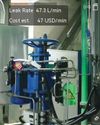
HIKMICRO AI Acoustic Imager enhances industrial efficiency by detecting air leaks
Industry studies suggest that leaks in compressed air systems can account for up to 30 percent of energy waste. Compressed air leaks are often harder to detect than other types of gas leaks because they do not produce noticeable smells or colours.

Driving innovation and expanding capacity to accelerate India's 2030 renewable energy goal
The company has outlined a strategy to expand its manufacturing capabilities in a phased approach to boost solar panel production to 13 GW. This includes preparation to launch a 4 GW TOPCon cell manufacturing plant by FY 2026-27.

By 2040, 49% of electricity will come from RE
According to the REN21 Renewables 2020 Global Status Report, investments in renewable energy projects and programmes totalled US$64.4 billion between 2014 and 2019.
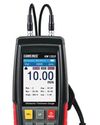
KUSAM-MECO introduces advanced models 'KM -131D' and 'KM 891'
The KM-131D is an ultrasonic thickness gauge model, while the KM 891 is an auto-ranging true RMS digital multimeter with data logging and a PC interface.

Customisable earthing solutions for smart city safety and sustainability
The firm offers a range of earthing compounds, grounding electrodes, and backfill materials, each tailored to optimise performance for different soil conditions, resistivity levels, and environmental factors. Whether it is a smart grid, renewable energy system, or EV charging station, its solutions can ensure safety, efficiency, and longevity.
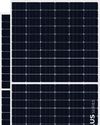
Novasys Greenergy pioneering innovation in solar panel manufacturing
The company's mission is to provide reliable, efficient, and affordable solar energy products for both residential and commercial markets.
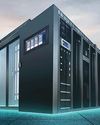
Make buildings and data centres hubs for energy efficiency
Delta modular UPS (Uninterruptible Power Supply) systems are engineered to help achieve maximum energy efficiency and cut operational costs across residential and commercial requirements.

Smart energy management for sustainable smart cities
Renewable energy, efficient power distribution, and advanced storage technologies are at the heart of smart city initiatives, opening the way for greener, more sustainable urban environments.
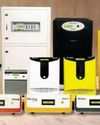
Su-Kam is an added layer of resilience against grid failures
Su-Kam offers lithium-ion battery solutions and advanced ESS (Energy Storage Systems) racks, Which enhance energy storage capacity and offer longer life cycles. Its hybrid inverters can operate both off-grid and on-grid, helping to reduce dependence on the national grid.

Advancements in energy storage boosting reliable and clean power solutions
Lithium-ion batteries, with high energy density and declining costs, power everything from EVs to grid storage. Flow batteries offer long-duration storage ideal for balancing renewable sources, while solid-state batteries, though still in development, promise improved safety and lifespan.